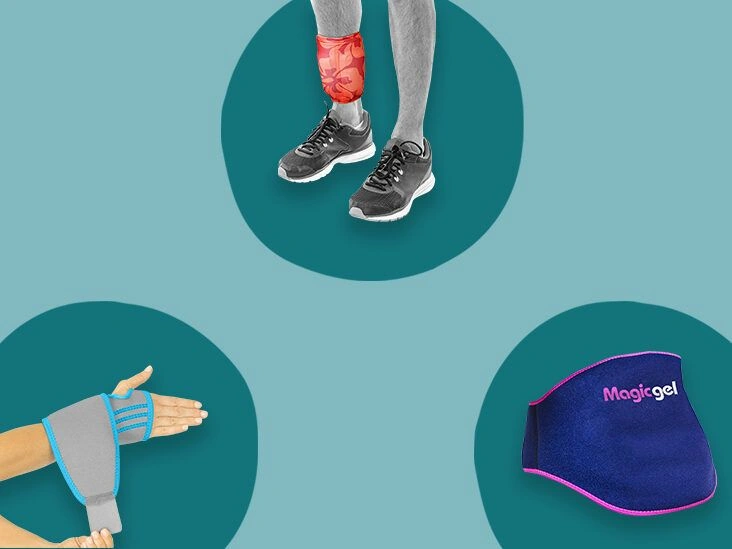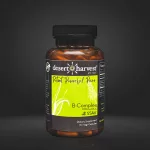A quick look at the best ice packs list
- Best for all-day use: CryoMAX 8 Hour Cold Therapy Pack
- Best for shoulders: REVIX Shoulder Ice Pack
- Best for wrists and hands: Arctic Flex Wrist Ice Pack
- Best for the back and large areas: FlexiKold Oversize Gel Cold Pack
- Best for the lower back: MagicGel Pain Relief Pack
- Best for knees: HurtSkurt Stretch-to-Fit Hot/Cold Pack
- Best for kids: Up & Up Hot+Cold Gel Bead Kids’ Compress
Arthritis can cause significant discomfort. Although there isn’t a cure, there are methods to ease symptoms. One frequently used approach is cryotherapy — cold treatment — typically using ice. Thermotherapy, or heat treatment, is also widely applied.
This guide concentrates on ice packs while also highlighting flexible options that can be used for both cold and heat therapy.
How we chose ice packs
- Personal experience. Living with a chronic condition that generates joint pain, my own use of cold therapy influenced several of the selections.
- Clinically recommended care. I reviewed scientific studies and guidance from medical sources and organizations such as the Arthritis Foundation.
- Design and usability. I prioritized items that are simple to handle, particularly for people with restricted mobility from arthritis. That includes adjustable straps, removable/washable covers, and products tailored to fit a variety of joints.
- Price. The list includes options across multiple price ranges to suit different budgets.
- Customer feedback. Using the Chrome extension Fakespot, I screened out manipulated and dubious reviews. I only considered products with an average rating of at least 4 out of 5 stars.
- Materials. I favored items that are easy to clean and made from soft, comfortable fabrics. Even though the focus is on cold packs, several dual hot/cold options are included.
Healthline’s ice pack picks
Best for all-day use
CryoMAX 8 Hour Cold Therapy Pack

- Price: $
- Pros: pliable, keeps cold for up to 8 hours
- Cons: cold-only; no heat capability
Measuring 12” by 6”, this medium CryoMAX pack is suitable for elbows, face, feet, or hands (and anywhere else it fits). Its up-to-8-hour cooling duration makes it great for extended relief while you’re out and about. Use the adjustable strap to secure it when you need long-lasting comfort.
Only apply cold for brief intervals (no more than 15 minutes) several times a day, or follow the advice of a healthcare provider familiar with your situation.
Shop now at TargetBest for shoulders
REVIX Shoulder Ice Pack

- Price: $$$
- Pros: covers full shoulder and upper arm
- Cons: designed for a single body area
Shoulder pain can be tricky to target with a traditional pack. This specially shaped ice pack molds to the whole shoulder. Once fastened with the arm and side straps, it provides cooling relief to your shoulder and upper arm.
The soft cover is designed to be skin-friendly so you may not need a towel barrier. It’s a solid option for recovery after shoulder surgery or other painful shoulder conditions.
Shop now at AmazonBest for wrists or hands
Arctic Flex Wrist Ice Pack

- Price: $
- Pros: keeps fingers free while icing wrist; adjustable compression
- Cons: limited to wrist use
The Arctic Flex wrist unit doubles as a compression brace and a cold pack. It looks like a typical wrist support but contains a gel insert that wraps the entire wrist. Tighten the brace to adjust compression.
The gel insert is microwave- and freezer-safe, and it leaves your hand and fingers unobstructed. The latex-free wrap fits wrists up to 9” around, is machine-washable, and is reversible for use on either hand.
Shop now at AmazonBest for the back and large areas
FlexiKold Oversize Gel Cold Pack

- Price: $$$
- Pros: flexible material; extra-large 13” x 21.5” dimensions
- Cons: cold-only; no heat option
Many ice packs are small, aimed at individual joints. This oversized FlexiKold pack is made to cover your entire back. You can also lay it over thighs, knees, or hips for broader relief. Freeze it for 1 to 2 hours beforehand for a stronger chill.
Shop now at AmazonBest for lower back
MagicGel Pain Relief Pack

- Price: $$
- Pros: conforms snugly; adjustable fit for the lower back
- Cons: not intended for arms or legs
This gel wrap straps around the hips and cradles the lower back, which can be helpful after tailbone or lower-back injuries. It can also be applied to the abdomen or hips.
It functions as a heat pack too, though warmth only lasts around 18 minutes. The gel remains pliable even when cold, allowing it to mold to your body.
Shop now at AmazonBest for knee pain
HurtSkurt Stretch-to-Fit Hot/Cold Pack

- Price: $$$
- Pros: snug without straps; playful patterns; doesn’t limit mobility
- Cons: gel packs can be very firm right after freezing, which may be slightly uncomfortable
Full disclosure: The HurtSkurt was provided to me by the company for review. It’s a clever design. Offered in black or six colorful prints, it contains twelve 2” x 4” gel pockets sewn into a stretchable sleeve. I found the sleeve comfortable and flexible enough to wear while typing.
When frozen, the gel pockets become rigid initially but soften shortly after application. For milder cold and more pliable gel, chill it in the refrigerator; heat it in the microwave for 20 to 45 seconds for warmth. The small size is best for wrists and ankles, while the medium and large fit knees and elbows.
Shop now at HurtSkurtBest ice pack for kids
Up & Up Hot+Cold Gel Bead Compress

- Price: $
- Pros: charming penguin motif; latex-free
- Cons: small size
This cute compress is tailored for children’s “owies.” It works as either a hot or cold pack, with temperatures lasting up to 20 minutes. It helps protect kids’ skin and nerves and reduces the risk of ice or heat burns from overuse.
Freeze for about 2 hours for cold, or heat in the microwave for 10 to 13 seconds for warmth. Its penguin shape makes it approachable and reassuring for little ones who aren’t feeling well.
Shop now at TargetFrequently asked questions
Can you leave an ice pack on too long?
Yes. Don’t leave an ice pack on your skin for more than 15 to 20 minutes at a stretch. Prolonged icing can cause frostbite — a painful cold-related burn. Don’t fall asleep with ice applied. Always set a timer for 15 to 20 minutes to avoid overexposure.
How frequently should I use ice for arthritis?
Use ice one to three times daily, for no longer than 15 to 20 minutes each session. Wait at least 10 minutes before reapplying.
How should I store an ice pack while I’m not using it?
Keep your ice pack in the freezer so it’s ready and cold when you need it next.
Which is better for arthritis pain: heat or cold?
There’s no single answer — both heat and cold have roles in managing arthritis and joint discomfort.
The Arthritis Foundation suggests using warmth (such as a warm compress or bath) for stiff joints and sore muscles. Heat dilates blood vessels, boosting circulation and delivering nutrients and oxygen to affected tissues. They advise cold therapy for swelling and redness because cold reduces blood flow and inflammation.
A study involving 179 patients across three controlled trials found that 20 minutes of ice massage, five days a week for three weeks, increased quadriceps strength by 29 percent in people with knee osteoarthritis. The research also noted modest gains in knee flexion range of motion and functional ability. One trial additionally reported that cold packs can reduce knee edema (fluid-related swelling).
Another small study of 18 women aged 50 to 69 observed clinical and walking improvements after 12 weeks using heat- and steam-generating sheets. In contrast, a 2018 randomized controlled trial with 93 rheumatoid arthritis patients found that dry heat did not enhance hand function or yield clear benefits.
So which should you pick: heat or cold? It depends on your symptoms. Try both during flare-ups to determine what helps most. You can alternate between heat and cold; you don’t have to stick to only one.
























Leave a Reply
You must be logged in to post a comment.